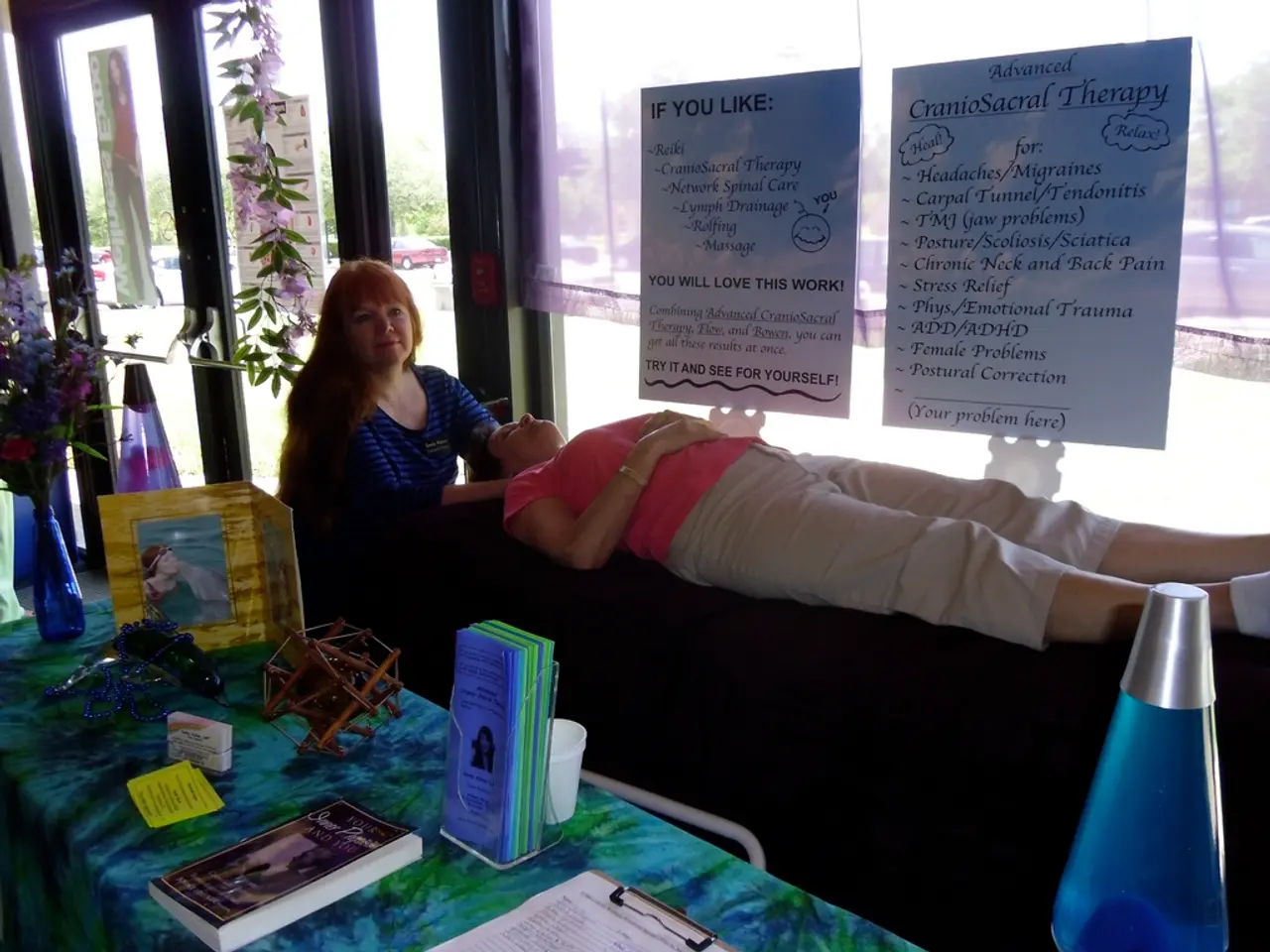Strategies for Overcoming Exhaustion: Personal Care Tactics for Stress Reduction
In today's fast-paced world, it's essential to take care of both our physical and mental well-being. Burnout, a state of physical, emotional, and mental exhaustion caused by prolonged stress, can have a significant impact on our daily lives. However, understanding the signs and effects of burnout can help us better manage it.
Getting enough sleep (7-8 hours each night) is crucial for allowing our body and mind to rest and recover. A balanced diet, rich in nutrients, fuels our body and mind, helping us cope better with stress. Engaging in activities that bring joy and relaxation is important for recharging and building resilience against burnout.
Practicing mindfulness through meditation and deep breathing can help us stay present and calm. Incorporating self-care habits into our daily routine, such as these mindfulness techniques, can help reduce stress and promote well-being.
Persistent sadness or anxiety might be a sign that it's time to talk to a therapist. Professional support, like therapy and counseling, offers a safer space to explore feelings and develop coping mechanisms. If you no longer enjoy activities you once loved, this could indicate burnout or depression.
Setting clear expectations and communicating our limits to others about availability and time for self is essential for preventing burnout. Setting boundaries is crucial for protecting our time and energy, and ensuring we don't become overwhelmed by demands.
Taking breaks is essential for recharging. Schedule regular daily breaks to rest and recharge. Drinking plenty of water keeps our body functioning properly and can reduce fatigue.
Learning to say no is okay. It's important to decline requests that add unnecessary stress. Understanding burnout and its effects can help us make informed decisions about our commitments.
Additional helpful habits include taking regular digital breaks, setting a consistent daily schedule, journaling or brain-dumping stressful thoughts, and carving out time for enjoyable hobbies or creative activities.
Starting with small, consistent actions that feel manageable can progressively build resilience and emotional balance. This holistic approach integrates physical movement, mental rest, nourishing food, digital detox, and mindfulness to effectively prevent stress accumulation and burnout over time.
Remember, taking care of ourselves is not selfish, but necessary for living a healthy, balanced life. By incorporating these self-care habits into our daily routine, we can better manage stress, prevent burnout, and live a happier, healthier life.
[1] Huffington Post. (2020). 10 Self-Care Habits to Manage Stress and Prevent Burnout. [online] Available at: https://www.huffpost.com/entry/self-care-habits-to-manage-stress-and-prevent-burnout_b_10456884
[2] Mind. (2021). Self-care: How to look after your mental health. [online] Available at: https://www.mind.org.uk/information-support/tips-for-everyday-living/self-care/self-care-how-to-look-after-your-mental-health/
[3] HelpGuide.org. (2021). Self-Care: Taking Care of You. [online] Available at: https://www.helpguide.org/articles/self-help/self-care-taking-care-of-you.htm
[4] Mayo Clinic. (2021). Self-care: Take care of you. [online] Available at: https://www.mayoclinic.org/healthy-lifestyle/self-care/in-depth/self-care/art-20044238
[1] Implementing a regular therapy session with a mental health professional could be a valuable addition to your self-care routine, providing a safe space to discuss feelings and develop coping mechanisms.
[2] Concurrently, workplace-wellness programs that prioritize mental health and education-and-self-development, such as stress management courses and mindfulness workshops, can significantly improve overall employee well-being and productivity.
[3] Furthermore, health-and-wellness retreats offering various therapeutic practices, like yoga, meditation, and therapy, can serve as an immersive personal-growth opportunity, fostering a greater sense of self-awareness and resilience.
[4] Engaging in professional education and research on the science of mental health can enrich our understanding of mental health issues and equip us to support those around us in their mental health journey.




